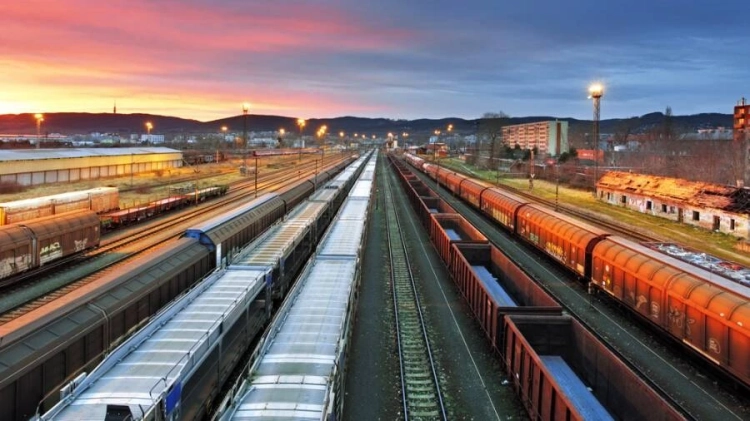Kazakhstan Wants to Become the Transit Hub of Eurasia. What Obstacles Are in the Way?
The second line of the Dostyk — Moyinty railway has been opened in Kazakhstan. The country's president noted that this route is an "important infrastructure project" that will help Kazakhstan become a key transit hub in Eurasia. However, behind the statements about strategic successes lie significant financial, logistical, and geopolitical problems, azattyq.org notes.
“HISTORICAL MOMENT”
At the opening of the railway on September 30, President Kassym-Jomart Tokayev stated that the launch is a "truly historical moment," and the project itself is a "significant infrastructure achievement."
“This will undoubtedly give a powerful impetus to the development of Kazakhstan's transport and logistics system,” he noted, adding that the new line will allow for a fivefold increase in cargo transportation volumes.
The Dostyk — Moyinty line, which is 836 kilometers long, connects the railway networks of Kazakhstan and China. The first line has been operational for a long time, transporting about 25 million tons of cargo annually. The second line, which cost 542 billion tenge (approximately one billion dollars) to build, is expected to make Kazakhstan a key transit hub in the Eurasian space.
With the launch of the second line, an increase in transportation volumes is expected in Kazakhstan. The national railway company "Kazakhstan Temir Zholy" claims that in the first two weeks after the opening, the volume of transportation increased by 42 percent compared to the same period in 2022. Due to the increase in cargo flow, employees are working in four shifts, reports the state television channel "Khabar."
This railway line is part of the Middle Corridor (Trans-Caspian Transport Route), one of the key land routes on the continent. The Coordination Council of the Trans-Caspian International Transport Route was established in February 2014 and includes railway companies and ports from Azerbaijan, Georgia, and Kazakhstan.
After the start of the full-scale war between Russia and Ukraine and the imposition of Western sanctions against Russia, many countries and major carriers have focused their attention on the Middle Corridor, which connects China with Europe through Kazakhstan, the Caspian Sea, Azerbaijan, Georgia, and Turkey.
However, the real situation is more complex than the official rhetoric suggests. It conceals problems ranging from financing the large-scale project to technical, economic, and geopolitical aspects.
“PROMISED” BILLIONS FROM EUROPE
Astana claims that the new Dostyk — Moyinty line was built two years ahead of schedule and with its own funds. In September 2025, during a speech in parliament, President Tokayev announced that another section of the railway, Kyzylzhar — Moyinty, will be completed on time.
The Middle Corridor, which connects these routes, includes not only a railway spanning thousands of kilometers but also seaports, water transport, and modern digital logistics solutions.
However, Kazakhstan's outdated railway infrastructure and the port of Aktau, which is not ready to handle large volumes of cargo, require significant investment.
Europe has been talking about major investments in the development of the Middle Corridor for several years. In 2023, the European Bank for Reconstruction and Development (EBRD) estimated that 18.5 billion euros would be needed for 32 infrastructure projects in Central Asia. At the investment forum in Brussels in January 2024, the EBRD and the European Investment Bank announced their intention to allocate 10 billion euros for infrastructure development in Central Asia.
At the EU-Central Asia summit held in Samarkand (Uzbekistan) on April 3-4 of this year, European Commission President Ursula von der Leyen confirmed the readiness to invest 10 billion euros in the Middle Corridor.
Kazakhstan's ambassador to Belgium and head of the Astana representation to the EU and NATO, Roman Vasilenko, told Azattyq about the progress made in implementing projects. Kazakhstan received a concessional loan from the EBRD amounting to 800 million dollars, about half of which will go to the "KazAvtoZhol" road projects, and the other half to "Kazakhstan Temir Zholy" projects.
Additionally, the EBRD allocated 35 million euros for the development of the Aktau port, which is an important element of the transcontinental corridor. The bank also provided an additional 10 million euros in the form of grant assistance.
Given the scale of the transport direction, the funds allocated by the European Union currently seem insignificant.
“It is still premature to say that all 10 billion promised in January 2024 have been allocated. The process is ongoing, and its effectiveness will be assessed at the second investment forum, which will take place at the end of November in Uzbekistan,” Vasilenko emphasized.
According to the diplomat, “the issue is related to lengthy procedures for preparing feasibility studies for various projects and coordinating internal processes in banks.”
The EU Special Representative for Central Asia, Eduards Stiprais, confirms that the process of obtaining financing is not quick.
“The money is there,” Stiprais noted. “But political decisions and agreements on further actions are needed, as this involves several borders and countries that have focused on asserting their sovereignty for the past 30 years.”
The European Union strives for transparency to ensure that funds are used efficiently and openly.
“Europe adheres not only to the law but also to the principle of maximum transparency and competitive allocation of public funds, regardless of their volume. Here, huge sums are being allocated, 3 billion euros, comparable to the annual budget of a small country. Only with transparency can we maximize the benefits from every euro invested,” Stiprais noted.
According to him, Europe could demonstrate to its partners in Central Asia an example of responsible financial management.
DIRECT INVESTMENTS FROM CHINA
The first EU-Central Asia summit took place against the backdrop of increasing demand for alternative transport routes bypassing Russia, leading to speculation that the EU could become a significant player in the region. However, skeptical opinions were also expressed, based on the complexities of decision-making in a bloc of 27 countries and funding issues.
“Central Asia wants greater EU presence, but regional leaders do not have high hopes. At this point, the EU has not allocated enough funds for governments to consider that Europe can become a third player, allowing Central Asia to rely less on Russia and China,” said Temur Umarov, a researcher at the Carnegie Eurasia Center in Berlin, in an interview with Radio Free Europe/Radio Liberty.
At the same time, projects under the Chinese initiative "One Belt, One Road" (OBOR) continue to develop actively.
The total volume of Chinese investments in Kazakhstan's economy has exceeded 26 billion dollars. President Tokayev announced at the "China-Central Asia" summit in Astana in June 2025 that there are about five thousand enterprises with Chinese capital operating in the country, including many infrastructure projects of the Middle Corridor within the framework of OBOR.
However, experts express concerns that as Chinese investments in critical infrastructure in Kazakhstan increase, dependence on Beijing will also rise.
The growing influence of China also serves as a factor that hinders the participation of Western companies in the project. China's presence in the region may be one reason why Europe is hesitant to invest, believes Callum Fraser, an expert on Russia and Eurasia at the Royal United Services Institute (RUSI) in the UK.
“Western companies face the growing influence of China on routes, terminals, and standards. Therefore, despite the obvious demand, the situation implies competition with Chinese state operators and route coordination, which can be politically sensitive,” Fraser comments in a conversation with Azattyq.
EUROPE AND CHINA'S COMPROMISE
Experts are also concerned about whether Kazakhstan will become a hostage to the conflict of interests between major players while implementing a large-scale project on its territory.
According to Roman Vasilenko, there is no need for concern: the current geopolitical situation allows Kazakhstan to become a real bridge between the West and the East. Transforming the country, located in the center of Eurasia and ranking ninth in the world by area, into a transport hub is beneficial for both Astana and other players. Vasilenko noted that 85% of cargo between China and Europe is already transported through Kazakhstan.
However, some experts emphasize that the conflict of interests among major players is already manifesting.
Nargis Kassenova, a specialist at the Harvard University Center for Russian and Eurasian Studies, believes that Kazakhstan's desire to become a transit hub between Europe and Asia aligns with China's interests, which is keen on developing Eurasian ties. At the same time, Europe and the US have different priorities: they support the concept of the Middle Corridor, which bypasses Russia and connects Central Asia with the European market.
Europeans want to reduce dependence on Russia for the transportation of Kazakh oil and uranium, the expert believes. The Middle Corridor could also provide direct access to rare earth elements and other minerals abundant in Central Asia. But are Europeans and Americans ready to develop the "One Belt, One Road" initiative, which brings Central Asia closer to China?
“It seems to me that Europeans are making compromises, seeing more benefits in developing land routes connecting them with Asia. The worse their relations with America become in terms of security and trade, the more they will be inclined to hedge risks and invest in relations with China,” says Nargis Kassenova.
CORRUPTION AND POLITICAL SYSTEM
Investors are always cautious, weighing the risks of investments. Callum Fraser emphasizes that potential investors eyeing the region are concerned about "the interference of an authoritarian regime in business interests."
“The need to counter authoritarianism is a pressing issue and poses a significant risk for any investments in an authoritarian regime. Political uncertainty can be a factor limiting Western investments in the region in the long term,” Fraser comments.
On the official website of the British government, the main risks of doing business in foreign countries are listed as illegal financing, bribery, and corruption. “These are the main barriers to investment growth. However, it seems that they do not significantly affect the preferences of Western companies,” says Fraser.
Eduards Stiprais, the EU Special Representative for Central Asia, noted that these issues are openly discussed with Central Asian partners, and they "have never tried to hide the existence of the problem."
“When we talk to them about human rights compliance, it means they are clearly aware of the problems with the rule of law and corruption. They agree with this,” says the EU representative.
However, Europe does not expect the same level of transparency from Central Asia as in the countries of the Old World.
“I am not that naive. I do not think they will ever be as transparent as, say, Switzerland, or as opposed to corruption as Sweden. But one can say that they are moving in that direction,” added Stiprais.
Nargis Kassenova believes that doing business in countries with authoritarian political regimes is easier.
“For investors, predictability and investment security are important. From this perspective, predictable authoritarian regimes are better than unpredictable democratic and semi-democratic countries,” the expert notes.
According to Roman Vasilenko, the fact that Kazakhstan has attracted 450 billion dollars in foreign investments over the years of independence, 200 billion of which came from Europe, speaks to the country's reliability.
“We are doing everything possible to provide the most favorable conditions for all investors — both Kazakh and foreign,” emphasizes Vasilenko.
Kazakhstan has amended its Constitution and implemented the English legal system for the financial center "Astana," established in 2018, where 4,500 companies are registered, through which 13 billion dollars in investments have flowed.
“This is another guarantee that the state is taking steps to strengthen trust in its judicial system and combat corruption,” adds Vasilenko.
Various platforms for dialogue with foreign investors have been created in the country: the Investor Council under the President, the Foreign Investment Council under the Prime Minister, and quarterly meetings of the Prime Minister with ambassadors.
CYBERSECURITY, DELAYED SMART CARGO
Official reports on the Kazakh part of the transport corridor often mention the digitalization of processes, automation of systems, and train movement management using artificial intelligence (AI). International industry journals report that the project's concept includes the use of AI for managing cargo transportation, as well as sensors and drones for monitoring infrastructure and ensuring compliance with environmental standards.
However, it is still unclear how this will be implemented in practice. Although press tours organized by "Kazakhstan Temir Zholy" speak of "the introduction of new traffic management technologies," it most often refers to the construction of railway tracks.
Freight carriers mention issues such as a fragmented tariff system, excessive documentation, and poor internet quality at border crossings. The highest echelons of power acknowledge the existence of problems, but the situation is not improving.
The implementation of a unified platform for customs and logistics management using AI — Smart Cargo — has been postponed. The system, which was supposed to be launched in October this year, is now expected only in 2026. Meanwhile, reports of failures in the electronic system and delays of freight trains at the border continue to come in.
Experts argue that the development of technologies also requires significant investments in cybersecurity and staff training. Connecting critical infrastructure to AI may increase the risk of cyberattacks, and mechanisms to protect against them are also important, although this is rarely mentioned in political statements.
If the cargo flow by rail doubles, will the capacity of the Aktau port on the Caspian Sea be sufficient?
The World Bank, in its 2023 study of the Middle Corridor, indicated that the biggest delays would occur at sea crossings due to "a lack of vessels and errors in transport documents." Additionally, serious problems include the high cost of crossing the Caspian Sea and the absence of a cargo transportation control system. On the other side of the water body lies the issue of the capacity of the Baku port. Experts concluded that even if cargo is quickly delivered from Kazakhstan to the Caspian Sea, it may get stuck in a "bottleneck," facing "narrow spots" in the transport corridor.
The government of Kazakhstan is already spending tens of millions of dollars on modernizing the Aktau port. The EBRD has allocated funds for this. However, it is still premature to say that maritime logistics is keeping pace with railway logistics.
Read also:
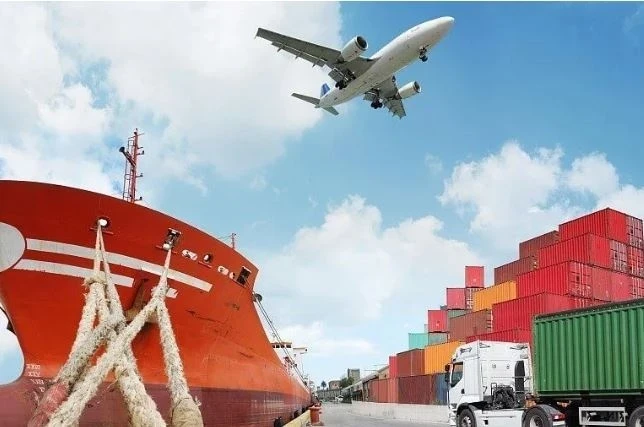
The Ministry of Transport of the Kyrgyz Republic commented on the statements of expert Andrei Belov
In his article, Belov pointed out that significant changes occurred in the freight transportation...

Volume of Transport and Communications Services for the First Half of 2014
Transport activities and cargo storage. In January-June of this year, the volume of cargo...
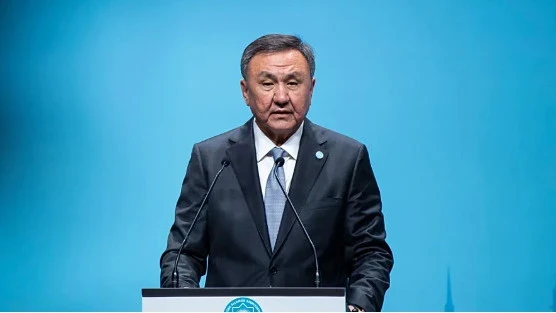
Turkic states aim to strengthen economic and trade ties with the EU, - CSTO Secretary General Omuraliyev
Kubanychbek Omuraliyev Omuraliyev also emphasized that the combined GDP of Turkic-speaking...
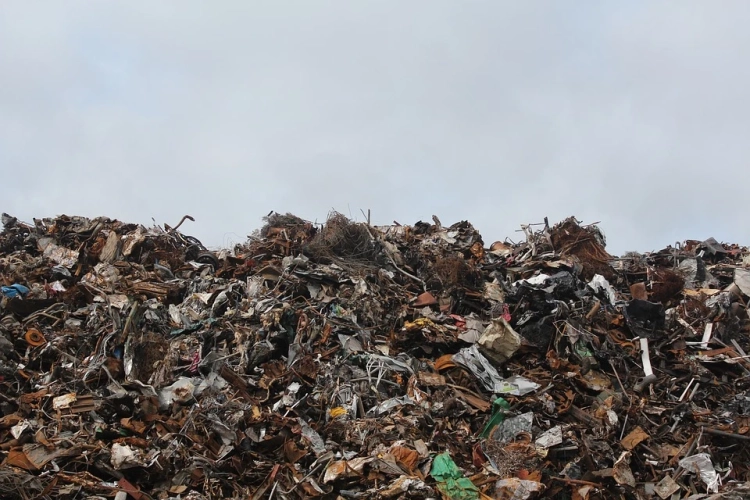
"Overcrowded Landfills and the Shortage of Effective Solutions." The Waste Crisis in Central Asia
The waste management situation in Tajikistan remains critical. In the country's poorest...
In a year, flour production increased by 8%, totaling 182.3 thousand tons
- From January to August 2025, Kyrgyzstan recorded an increase in the production volumes of several...
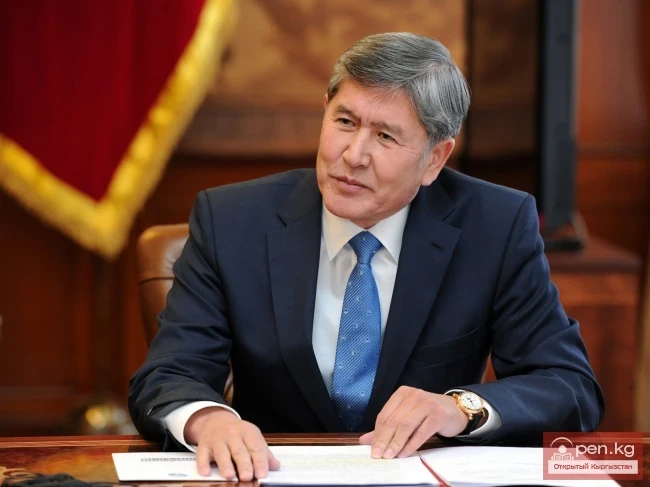
The President of Kyrgyzstan will make a state visit to Kazakhstan.
The President of Kyrgyzstan will make a state visit to Kazakhstan. This is reported by the media...

The cable car from Almaty to Issyk-Kul could pay off in 5 years.
The cable car from Almaty to Issyk-Kul could pay off in five years. This was reported by the head...
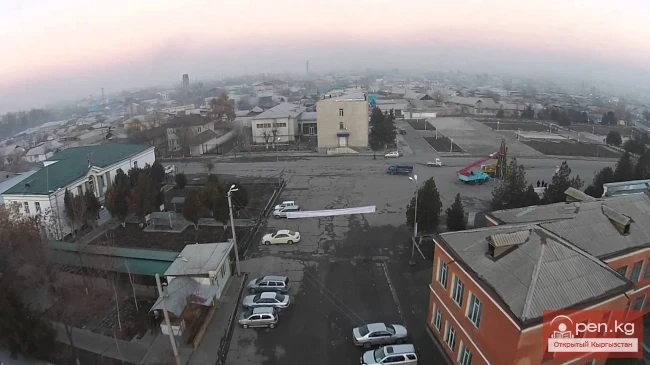
City of Kara-Suu
The city of Kara-Suu serves as the administrative center of the district of the same name. It was...

From January to September of this year, migrants transferred $1 billion 581.1 million to Kyrgyzstan.
From January to September of this year, migrants transferred $1 billion 581.1 million to...
EABR forecasts the construction of 395,000 sq.m. of warehouse space in Kyrgyzstan in the coming years
- On October 23, analysts from the Eurasian Development Bank (EDB) presented their findings on the...
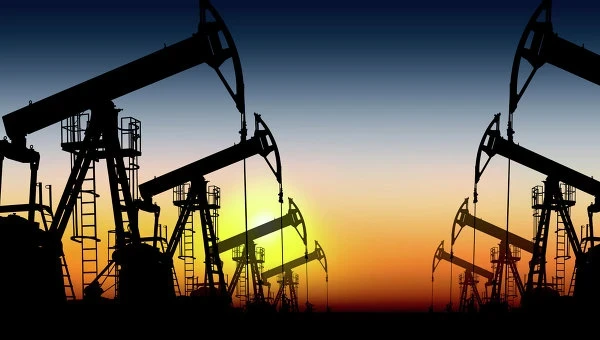
Kazakhstan to Increase Oil Supplies to Europe
The Minister of Energy of Azerbaijan, Parviz Shahbazov, noted that since 2023, 3.4 million tons of...
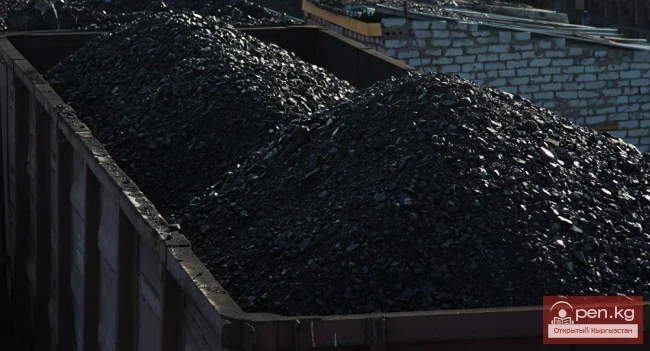
Kazakhstan Resumed Coal Supplies to Kyrgyzstan
In the coming days, the republic will receive about 424 thousand tons of Kazakh coal About 15 days...
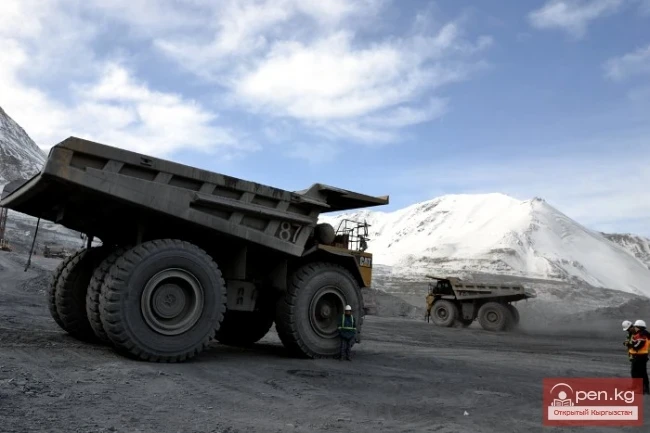
The company "Kumtor" will help restore the irrigation infrastructure of the Ton District.
The company "Kumtor" will help restore the irrigation infrastructure and repair the roads...
In the Kyrgyz Republic, the yield of certain crops in 2025 decreased due to a lack of irrigation water, - Ministry of Economy
- In the first nine months of 2025, the gross agricultural output of the country reached 348.4...
In Kyrgyzstan, the production of key types of construction materials has increased by an average of 50%
- From January to August 2025, there has been an increase in the extraction of key construction...
Oil and Natural Gas Production in Kyrgyzstan Decreased by an Average of 9%
- From January to August 2025, Kyrgyzstan registered a decrease in oil and natural gas production...
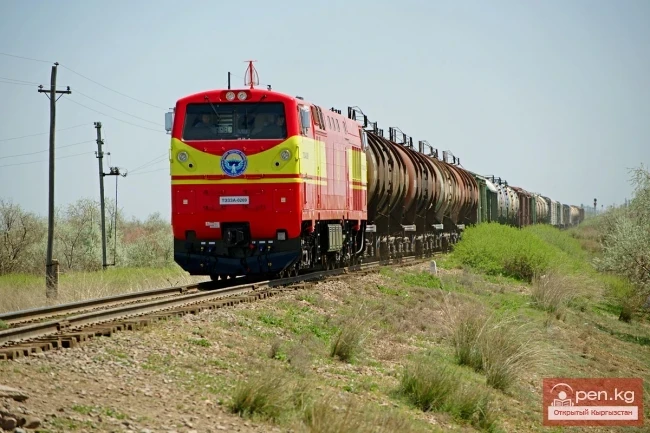
Kyrgyz Railway
Based on the Resolution of the Ministry of Transport of the USSR No. 631 dated May 13, 1958, the...
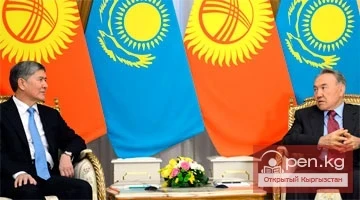
Kazakhstan: Trading in Light, Vegetables, and Clothing
In terms of trade volume with Kyrgyzstan, Kazakhstan ranks third. Kyrgyzstan trades with a total...
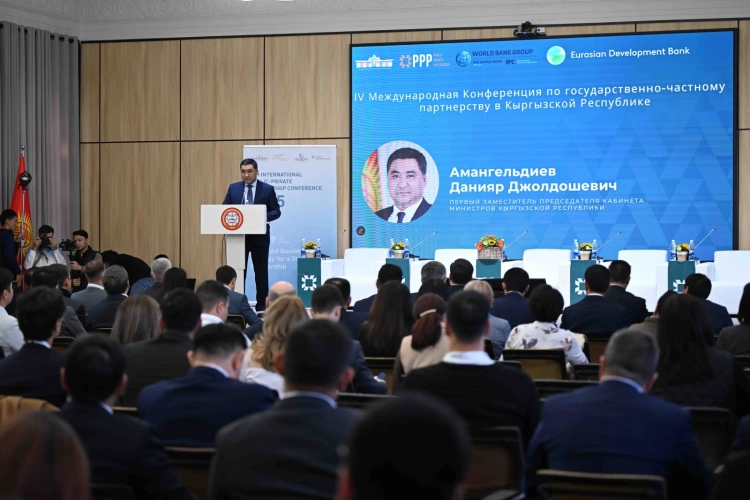
The portfolio of PPP projects in Kyrgyzstan exceeded 434 billion soms
The IV International Conference dedicated to public-private partnership was held in Bishkek. The...
The rise in fuel prices has intensified inflationary processes in Kyrgyzstan, - Ministry of Economy
- According to information from the Ministry of Economy and Commerce, the consumer price index,...
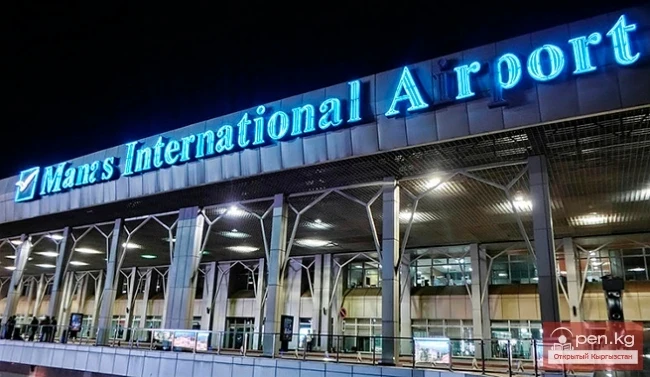
The number of flights at airports in Kyrgyzstan has increased.
Over the past five years, the number of serviced flights at OJSC "Manas International...
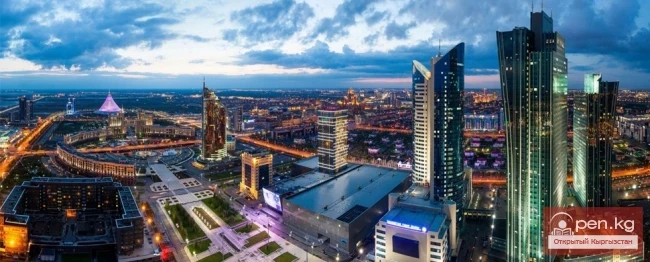
Republic of Kazakhstan
KAZAKHSTAN. Republic of Kazakhstan A state in the center of Eurasia. Area - 2,724.9 thousand km²....
Revenue to the budget increased manifold after the monopolization of alcohol production
The State Agency for Management of State Property reported that Kyrgyzstan's alcohol products...
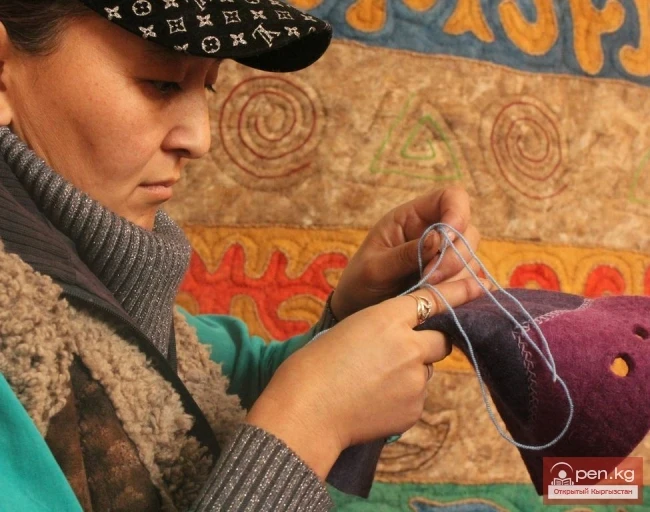
Market of Services and Trade
The volume of market services provided by economic entities in January-June 2014, according to...
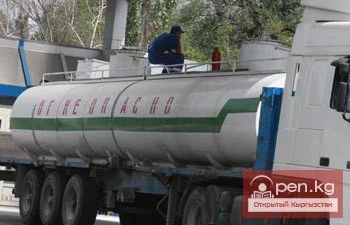
Illegal import of fuel and lubricants from Kazakhstan reaches tens of thousands of tons.
On October 8, this was stated by the Minister of Economy of Kyrgyzstan, Oleg Pankratov, at a press...
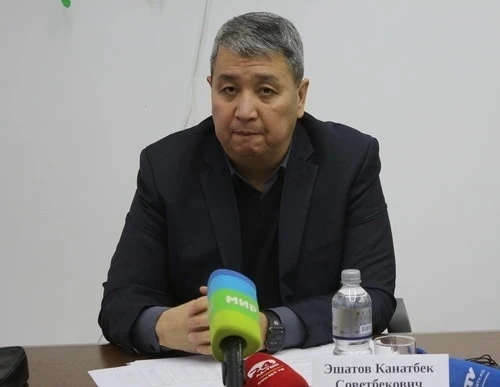
Interview with the President of the Association of Oil Traders of the Kyrgyz Republic on the Situation in the Fuel Market
In an interview with the President of the Association of Oil Traders of the Kyrgyz Republic,...

The President of Kyrgyzstan banned blocking roads during the passage of his motorcade.
The President of Kyrgyzstan has banned blocking roads during the passage of his convoy. Now...
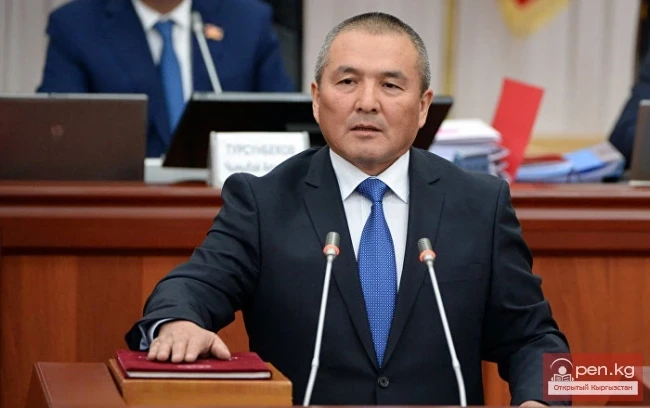
Kyrgyzstan "integrates" into China's giant plans
Expert: Kyrgyzstan "integrates" into China's giant plans On December 27, trilateral...

Results of the Socio-Economic Development of the Kyrgyz Republic for the First 9 Months of 2014
According to preliminary data from the National Statistical Committee of the Kyrgyz Republic, the...
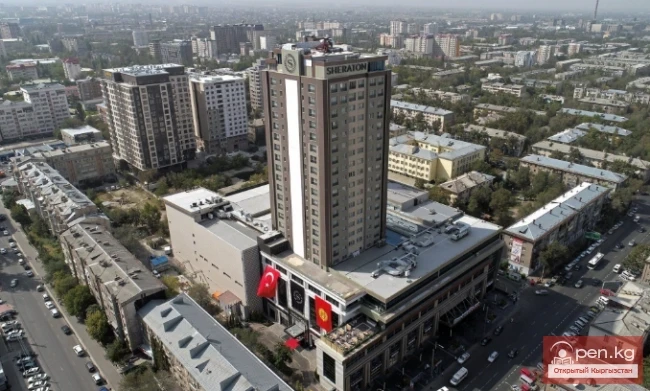
President Sooronbay Jeenbekov urged participants of the Kyrgyz-Turkish forum to invest in Kyrgyzstan.
Jeenbekov is confident that the opening of the "Sheraton" will positively impact tourism...

The Kyrgyzstan national team is preparing for the Eurasian Hockey Cup.
The Kyrgyzstan national team is preparing for the Eurasian Cup in hockey among children's...
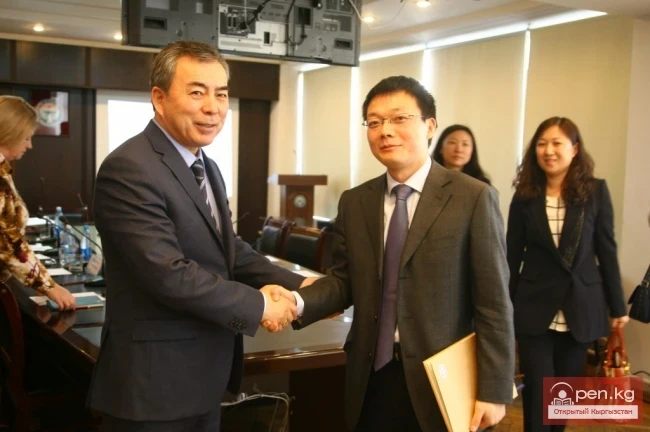
The Export-Import Bank of China Today Plays a Leading Role in the Development of Kyrgyzstan's Road Transport Sector
Yesterday, the head of the Ministry of Transport of the Kyrgyz Republic, K. Sultanov, met with a...
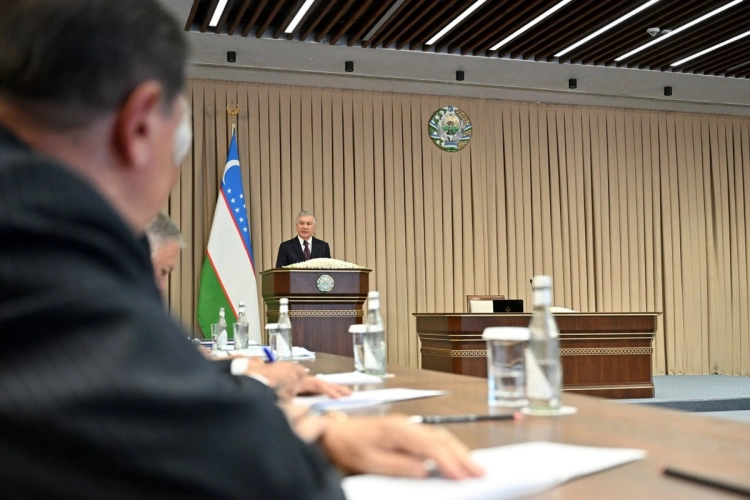
Satellite internet operators will start operating in Uzbekistan from 2026 — Mirziyoyev
The President emphasized the importance of creating more attractive conditions for investors, as...

On the Sale of Utemuratov's Business to the Chinese, Pakistani Kazakhs, and the Islamic System in Banks (Overview of Kazakh Media)
The discussion presents a case where the Deputy Chairman of the Board of Kazakhstan Temir Zholy,...
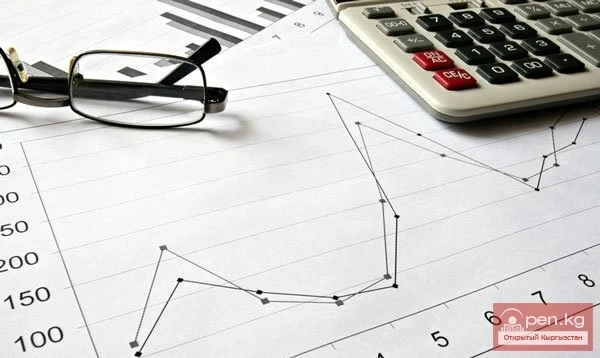
Information on the Results of Socio-Economic Development of the Kyrgyz Republic for January - November 2014
According to preliminary data from the National Statistics Committee of the Kyrgyz Republic, for...

Under the Chairmanship of the Heads of State, the 4th Meeting of the Supreme Intergovernmental Council of the Kyrgyz Republic and the Republic of Kazakhstan Took Place
On November 7, 2014, in the city of Astana, the 4th meeting of the Supreme Intergovernmental...
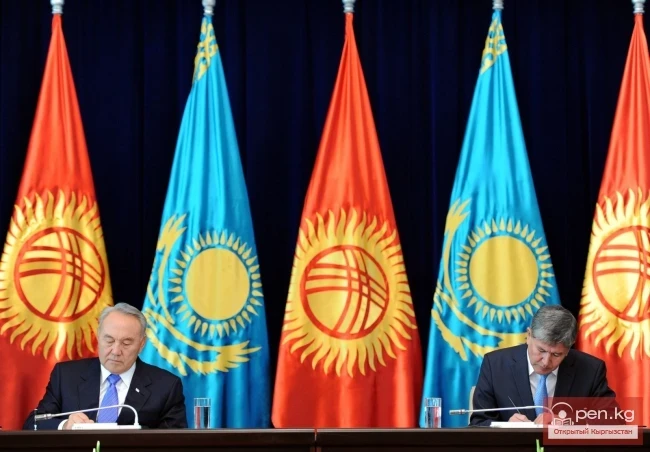
Kyrgyzstan — Kazakhstan
Kyrgyzstan borders one of the most developed regions of Kazakhstan — Almaty. This proximity...
There is a structural shortage of quality warehouse real estate in the Eurasian region, - EDB
- The analysis of warehouse real estate in the Eurasian region was presented by EDB analysts on...
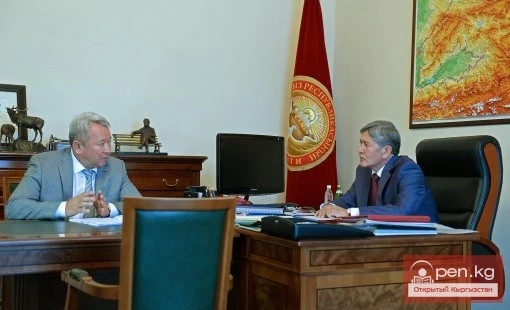
By September 1, 23 schools will be completed in Kyrgyzstan.
By September 1, 23 schools will be completed in Kyrgyzstan, as reported by the Minister of...
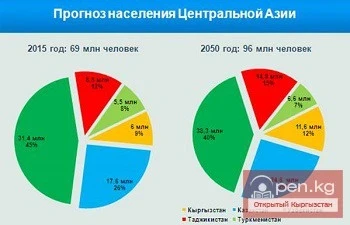
By 2050, Central Asia will have a population of 96 million people.
By 2050, the population of Central Asia will reach 96 million people. This represents an increase...
In Kyrgyzstan, a decrease in sugar production is expected due to weather conditions, - Ministry of Agriculture
In 2025, Kyrgyzstan will face a decrease in sugar production volumes due to unfavorable weather...
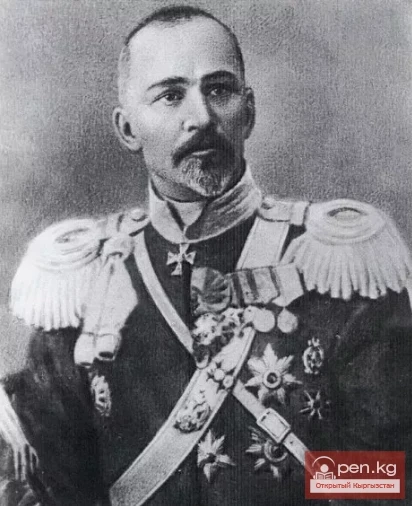
Construction of the Semirechenskaya Railway and the erection of hydraulic structures for the irrigation of the Chu River valley. Document No. 34 (June 1916).
ADDRESS FROM THE MILITARY GOVERNOR OF THE SEMIRECHENSKAYA REGION TO THE OFFICE OF THE TURKESTAN...
A Multilateral Dialogue on Combating Transport Air Pollution is Taking Place in Bishkek
On October 21, a multilateral dialogue was held in Bishkek dedicated to issues related to combating...
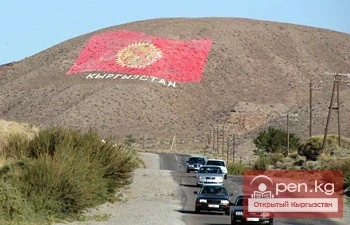
The construction of the "Almaty – Cholpon-Ata" road will be completed by the beginning of 2017.
The length of the new highway 'Almaty – Issyk-Kul' will be 280 kilometers. These figures...
Sadyr Japarov called to dedicate 23 minutes on October 23 in honor of the snow leopard
In his address dedicated to the International Snow Leopard Day, President Sadyr Japarov noted that...
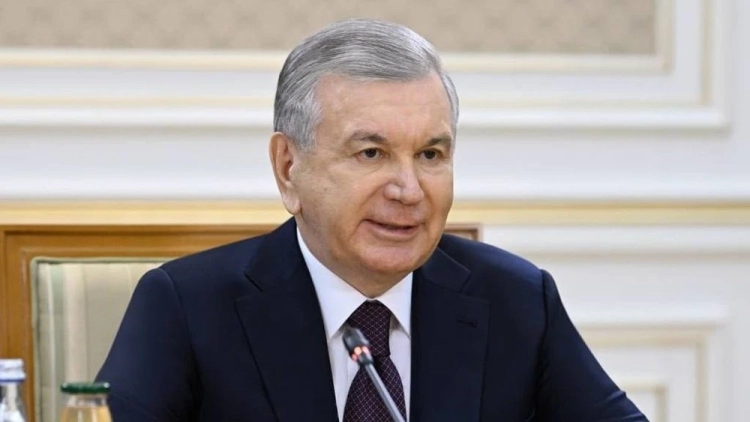
Water accounting and expenses in Uzbekistan will be transitioned to a digital format
Uzbekistan is preparing for significant changes in the management of water resources. President...
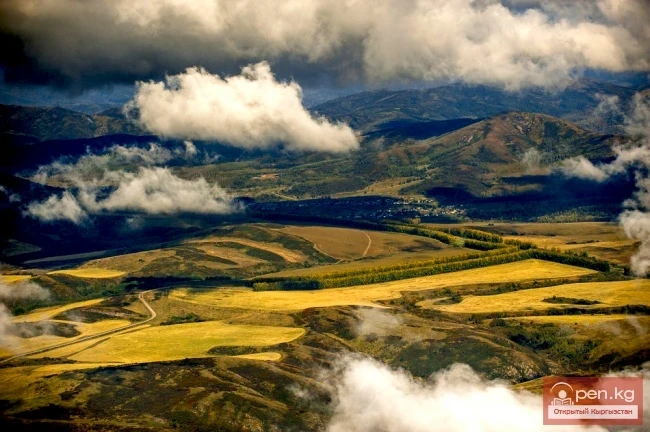
Northern Kyrgyzstan
Do you remember the business people from O. Henry's stories? No, not the adventurous plot...
